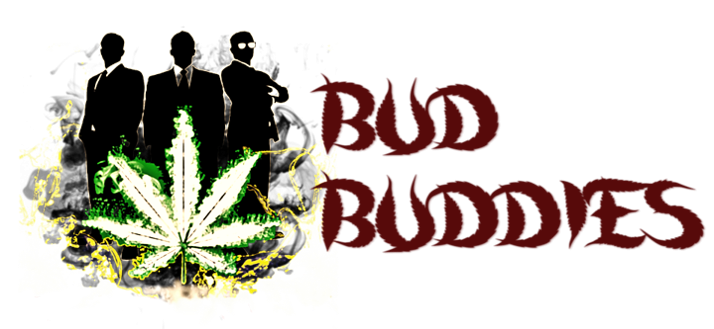
The defiant Russia-North Korea friendship pact raises big questions for Washington and Seoul — but also for Beijing
A quarter of a century ago, Vladimir Putin flew to Pyongyang to sign a “friendship treaty” with Kim Jong-il that helped revive Russia’s relations with North Korea without obliging the two sides to come to each other’s aid in case of a military attack.
With his visit last week, Putin has in effect gone further into the past, signing a deal with Kim Jong-un reminiscent of the 1961 security pact that existed under the Soviet Union during the cold war. But today Russia is engaged in a hot war in Ukraine that Putin has made his foreign policy priority, and a nuclear North Korea has become a crucial lifeline of munitions for his military.
“The treaty that Putin signed with Kim Jong-un was a return to the cold war, but of course in the cold war North Korea had no nuclear weapons,” said Dr Edward Howell, the Korea Foundation fellow with the Asia-Pacific programme at Chatham House, and a lecturer at the University of Oxford.
While last week’s summit was years in the making, it nonetheless marked a watershed in Russia’s relationship with North Korea, and one that US officials have warned could destabilise an uneasy balancing act in the region.
“Russia has now put in writing just how willing and committed it is to deepening and expanding its cooperation with North Korea,” said Jamie Kwong, a fellow in the nuclear policy programme at the Carnegie Endowment for International Peace. Kim admired Russian space technology and fighter jets during a summit last year with Putin in Russia’s far east, and his wishlist could include technologies that would aid North Korea’s space and missile programmes simultaneously, as well as economic and energy support.
Putin’s immediate goal is to develop a partnership that has delivered millions of artillery shells, as well as ballistic missiles, desperately needed for his war in Ukraine. But the roots of the relationship go deeper: the two leaders have aligned in a growing anti-western coalition and seem increasingly unrestrained by western threats.
The image of Putin — who once regularly met US and European leaders — flying to Pyongyang to be feted by Kim was striking. During the summit, Putin gave Kim a second Russian-built Aurus limousine, in a symbolic rejection of the sanctions that the two sides have taken pleasure in flouting.
“The two leaders really just don’t care,” said Howell. “That highlights how, for Kim Jong-un, he now has a partner who is equally as delinquent as he is.”
US and Nato officials have voiced concern over potential support for North Korea’s missile and nuclear programmes. A copy of the treaty published by North Korea explicitly listed cooperation in “peaceful nuclear energy”, while US officials told NBC News that Russia would also be providing technology to aid North Korea’s atomic submarine programme.
But analysts said the scope of support for North Korea’s military nuclear programme would probably remain limited, in part because Russia is nervous about sharing sensitive technology and also because Moscow has historically been uneasy about Pyongyang’s atomic weapons.
Some of the most concerning aspects of the agreement are more conventional: the reportedly growing arms trade between the two countries that could embolden North Korea and complicate western war planning in the case of an open conflict on the Korean peninsula.
“There’s a lot that Russia can still give North Korea at this juncture that would significantly improve North Korea’s ability to reconstitute its conventional military deterrent,” said Ankit Panda, the Stanton senior fellow in the nuclear policy programme at the Carnegie Endowment for International Peace.
The Russians are not going to be too eager to transfer some of their most sensitive nuclear technologies, he believes, but would be more ready to help North Korea improve its air defence capabilities, supply spare parts and maintenance for its ageing air force, and help modernise its navy, including technology for nuclear submarines. That would “substantially complicate planning for the US-South Korea alliance, which would support both Russian and North Korean strategic objectives,”
https://uxfol.io/4301f08a
https://uxfol.io/p/2d002588/about
https://uxfol.io/157b9d78
https://www.imdb.com/list/ls541049096/
https://www.imdb.com/list/ls541049564/
https://www.imdb.com/list/ls541049711/
https://www.imdb.com/list/ls541049255/
https://www.imdb.com/list/ls541049661/
https://www.imdb.com/list/ls541049342/
https://www.imdb.com/list/ls541559454/
https://www.imdb.com/list/ls541559441/
https://www.imdb.com/list/ls541558549/
https://www.imdb.com/list/ls541559832/
https://www.imdb.com/list/ls541558117/
https://www.imdb.com/list/ls541558634/
https://www.imdb.com/list/ls541558681/
https://www.imdb.com/list/ls541570772/
https://www.imdb.com/list/ls541575721/
https://www.imdb.com/list/ls541575440/
https://www.imdb.com/list/ls541575408/
https://www.imdb.com/list/ls541577015/
https://www.imdb.com/list/ls541575869/
https://www.imdb.com/list/ls541575806/
The deal has already led to a heated back-and-forth between Russia and South Korea. Seoul last week indicated it could provide Ukraine with lethal weapons for the first time in response to the treaty. Putin, in turn, warned that this would be a “big mistake” and that Moscow in response could make “decisions which are unlikely to please the current leadership of South Korea.”
The deal is also seen as a headache for China, which is caught between concerns about competition for influence in North Korea and the potential for the US to extend its support to South Korea as a result. Xi Jinping may seek a summit with Kim by the end of the year, Howell believes.
The meeting also marked a new low point for international efforts at promoting nonproliferation, once a rare area of cooperation between Russia and the US.
Even in 2017, after the annexation of Crimea and the accusations of Russian interference in the US elections, the US still persuaded Russia to vote for new UN sanctions against North Korea, albeit watering them down in the process.
